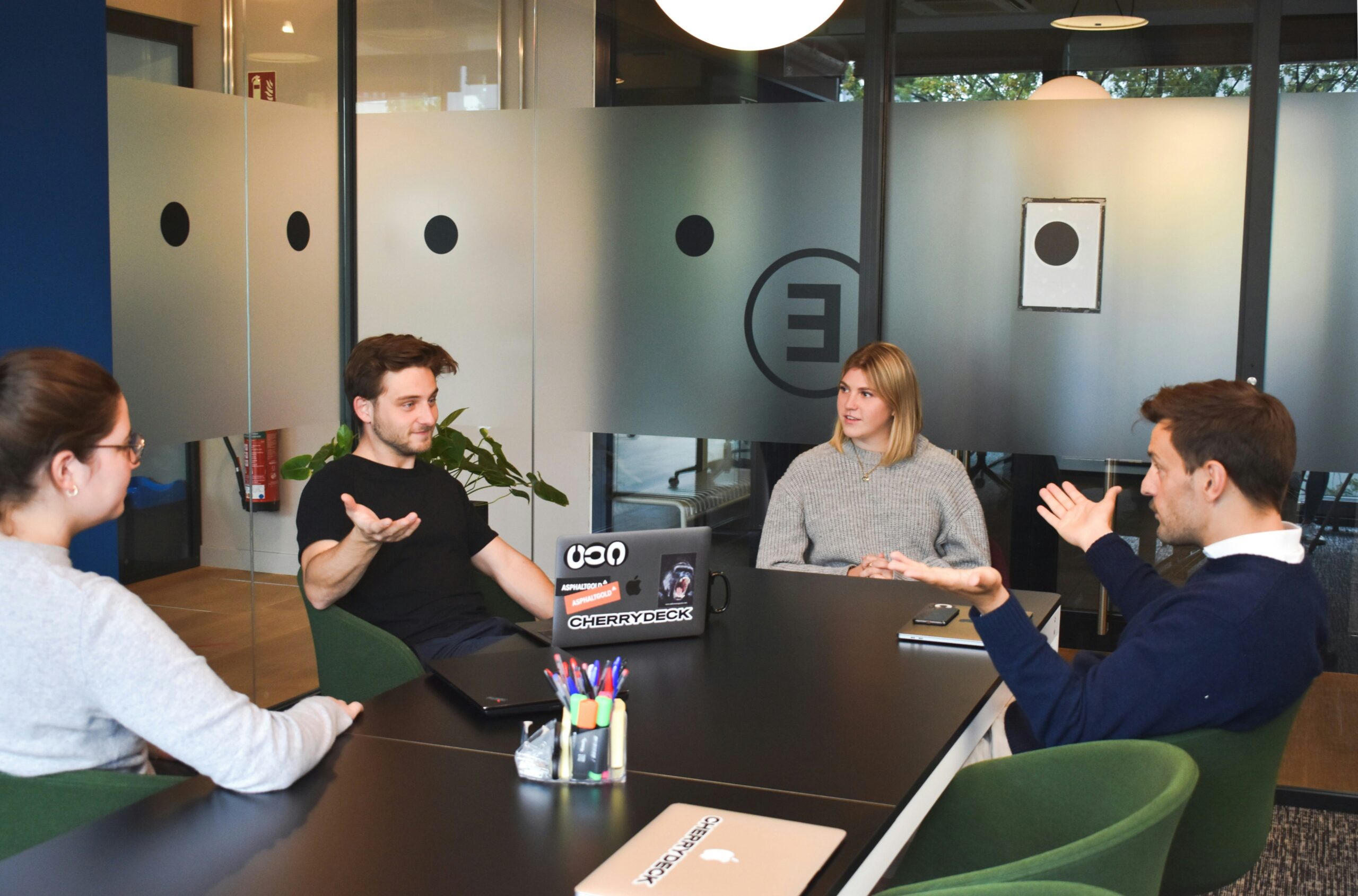PEO The Rising Global Trend – Introduction
In the rapidly evolving landscape of global business, the rise of Professional Employer Organizations (PEOs) marks a transformative shift in how companies approach expansion and workforce management. PEO The Rising Global Trend, emerging as the backbone of modern business strategies, offer a streamlined solution for navigating the complex terrains of international labor laws, employee benefits, and HR responsibilities. This innovative model not only simplifies operational processes but also empowers businesses to tap into new markets with unprecedented ease and efficiency.
As we delve into the essence of “PEO: The Rising Global Trend,” it becomes evident that the allure of PEOs lies in their unique co-employment model. By partnering with a PEO, businesses can effectively outsource a significant portion of their employment tasks, allowing them to focus on core operations while ensuring compliance with local and international regulations. This partnership is especially crucial in today’s globalized economy, where the ability to swiftly adapt to diverse legal and cultural environments can make or break a company’s international ventures.
The growing trend of PEO adoption speaks volumes about its role in facilitating global expansion. Companies of all sizes, from startups to multinational corporations, are turning to PEOs to streamline their entry into new markets, manage their global workforce more efficiently, and gain a competitive edge. The PEO model has become synonymous with flexibility, scalability, and strategic advantage, enabling businesses to navigate the complexities of global expansion with confidence and agility.
This article aims to explore the dynamics behind the rising popularity of PEOs, shedding light on how they have become a pivotal element of global business strategy. From dissecting the operational benefits to understanding the challenges and future prospects, we will journey through the multifaceted world of PEOs and their transformative impact on the global business ecosystem.

ABC’s Of PEO
At the core of the burgeoning trend of global business expansion lies an integral player: the Professional Employer Organization (PEO). PEOs have revolutionized the way businesses operate on an international scale, providing a bridge over the complex and often treacherous waters of global employment law, HR management, and employee benefits. Understanding the ABCs of PEOs is essential for any company looking to leverage this rising global trend to their advantage.
What is a PEO?
A PEO acts as a co-employer to your workforce, meaning it shares certain employer responsibilities through a client-service agreement. This model allows businesses to outsource several critical functions, including payroll processing, tax filing, employee benefits management, workers’ compensation insurance, and compliance with both local and international labor laws. The PEO effectively becomes the employer of record for tax purposes while the client company maintains control over day-to-day operations and management of employees.
How Does a PEO Work?
The operational model of a PEO is founded on the concept of shared responsibility. When a business partners with a PEO, it enters into a co-employment agreement, which delineates the roles and responsibilities of both parties. The PEO then takes over various administrative tasks, freeing up the company to focus on growth, product development, and strategic planning.
One of the key functions of a PEO is to pool together employees from multiple client companies to negotiate better rates for health insurance and other benefits, a practice that can lead to significant cost savings and more attractive employee benefits packages. This pooling method not only benefits small and medium-sized enterprises (SMEs) by giving them access to benefits typically reserved for larger corporations but also streamlines the benefits management process, making it more efficient and less prone to errors.
The Value Proposition of PEOs
The value of PEOs extends beyond mere convenience. By assuming the burden of complex administrative tasks, PEOs allow businesses to navigate the intricacies of expanding into new territories with ease. This is particularly advantageous in today’s globalized economy, where understanding and complying with local employment laws can be a daunting task. PEOs bring expertise in local regulations, ensuring that businesses stay compliant and avoid costly legal pitfalls.
Furthermore, the PEO model facilitates scalability. As businesses enter new markets and onboard employees from different countries, PEOs can quickly adapt to changing needs, scaling services up or down as required. This flexibility is invaluable for businesses in growth mode, as it allows them to expand their workforce without the added overheads and complexities of managing international HR departments.
Differentiating PEOs from Traditional HR Outsourcing
While PEOs might seem similar to traditional HR outsourcing, the co-employment model offers a distinct advantage. Traditional HR outsourcing involves hiring an external company to handle HR tasks, but the business remains the sole employer of record. In contrast, the PEO model involves a sharing of employer responsibilities and liabilities. This shared model means PEOs have a vested interest in ensuring compliance and managing risk effectively, leading to a partnership that is more integrated and beneficial for the client company.
The Rising Global Trend
The rise of PEOs as a global trend is a response to the increasing complexities of managing a global workforce. As businesses seek to expand their footprint in new markets, the appeal of a partnership that offers legal compliance, risk management, and operational efficiency is undeniable. PEOs not only facilitate this expansion but also ensure that businesses can focus on their core competencies, driving growth and innovation.
In summary, the ABCs of PEOs lay the foundation for understanding how these organizations are playing a pivotal role in the global business landscape. By demystifying the operational intricacies of PEOs, companies can better leverage this trend to navigate the challenges of global expansion, ensuring they remain competitive and compliant in an ever-evolving market.

The Global Ascendancy of PEOs
The global ascendancy of Professional Employer Organizations (PEOs) is a trend that mirrors the shifting paradigms of the modern workforce and the ever-expanding horizons of businesses seeking to establish a footprint across borders. This surge in PEO popularity is not a sudden phenomenon but a gradual evolution responding to the growing complexities and demands of global business operations. The journey of PEOs from niche service providers to key players in international business expansion is a testament to their effectiveness in addressing the multifaceted challenges faced by companies going global.
Historical Context and Growth Trajectory
The concept of PEOs, though relatively modern in its current form, has roots that trace back to the 1980s in the United States. Initially focused on providing small businesses with cost-effective access to employee benefits, the scope of PEO services expanded as businesses faced an increasing burden of regulatory compliance, HR management complexities, and the need for competitive employee benefits. As globalization accelerated in the late 20th and early 21st centuries, the PEO industry adapted and grew, extending its services to meet the demands of companies looking to expand beyond their domestic markets.
This growth trajectory has been remarkable, with the PEO industry experiencing a steady increase in both the number of organizations and their client base. According to the National Association of Professional Employer Organizations (NAPEO), the PEO industry has grown 15 times faster than the overall employment market in recent years. This expansion is indicative of the rising reliance on PEOs by businesses aiming to streamline their operations and focus on core activities while ensuring compliance and employee satisfaction in diverse regulatory landscapes.
The Role of Technology and Globalization
Technology and globalization have been pivotal in propelling PEOs onto the global stage. Digital transformation has enabled PEOs to offer more efficient and scalable services, leveraging cloud computing, data analytics, and online platforms to manage HR tasks, payroll, and compliance documentation. This technological edge has made it easier for PEOs to cater to a global clientele, ensuring seamless integration of services across different jurisdictions.
Globalization, on the other hand, has necessitated the need for businesses to expand internationally at a much faster pace than before. The complexity of managing a global workforce, each part subject to different legal and regulatory frameworks, has made the PEO model not just attractive but essential for many businesses. PEOs offer a pathway to global expansion that mitigates risk and reduces the overheads associated with establishing independent HR and legal departments in every country of operation.
PEOs and the Global Business Landscape
The adaptability of PEOs to the needs of the global business landscape has been a key factor in their ascendancy. They have evolved to offer a comprehensive suite of services that cater to the nuanced requirements of managing international workforces—ranging from navigating local labor laws to customizing employee benefits packages that attract talent in competitive markets. This versatility has made PEOs an invaluable partner for businesses venturing into new territories, where understanding and compliance with local norms are crucial for success.
Moreover, the PEO model has democratized access to global markets, previously the domain of large multinational corporations. Small and medium-sized enterprises (SMEs) now have the means to expand internationally without the daunting investment in administrative infrastructure. This leveling of the playing field has spurred innovation and competition, driving economic growth and diversification.

The Driving Forces Behind PEO Popularity
The surging popularity of Professional Employer Organizations (PEOs) across the global business landscape is not an accident but a reflection of several compelling forces driving companies to adopt this model. As businesses grapple with the challenges of globalization, regulatory compliance, and talent management, PEOs emerge as a beacon of efficiency, compliance, and strategic advantage. This section delves into the multifaceted drivers behind the rising tide of PEO adoption, elucidating how they are reshaping the way businesses approach international expansion and workforce management.
Globalization and Market Expansion
One of the primary catalysts propelling the popularity of PEOs is the relentless pace of globalization. As businesses seek to transcend geographical boundaries and tap into new markets, they are confronted with the daunting complexities of international employment laws, tax regulations, and cultural nuances. The PEO model offers a streamlined pathway to global expansion, enabling businesses to leverage the PEO’s expertise in local regulations and employment practices. This not only accelerates market entry but also mitigates the risks associated with non-compliance and cultural missteps, making globalization a more attainable goal for companies of all sizes.
Complexity of Compliance and Risk Management
The ever-evolving landscape of employment law and regulations presents another significant challenge for businesses operating across multiple jurisdictions. Staying abreast of changes in labor laws, tax obligations, and compliance requirements can be a herculean task, particularly for SMEs with limited resources. PEOs, with their specialized knowledge and resources, take on the burden of compliance and risk management, ensuring that businesses adhere to local and international laws. This not only protects companies from potential legal and financial penalties but also enhances their reputation as responsible employers.
The Rise of Remote Work
The exponential rise of remote work, accelerated by the COVID-19 pandemic, has further amplified the appeal of PEOs. As companies adapt to a more dispersed workforce, managing remote employees—each potentially subject to different employment laws—has become increasingly complex. PEOs facilitate the management of remote teams by providing uniform HR policies, benefits administration, and legal compliance across diverse geographical locations. This support is invaluable for companies navigating the challenges of remote work, enabling them to maintain operational efficiency and employee satisfaction.
Focus on Core Business Functions
In today’s hyper-competitive business environment, companies are continuously seeking ways to streamline operations and focus on their core competencies. The administrative burden of HR functions, compliance, and employee management can divert valuable resources from strategic initiatives. By partnering with a PEO, businesses can offload these non-core tasks, freeing up time and resources to concentrate on innovation, product development, and market expansion. This strategic realignment towards core business functions is a key driver behind the adoption of PEOs, as companies strive for greater operational efficiency and competitive advantage.
Access to Better Employee Benefits and Talent Management
PEOs offer businesses the opportunity to provide their employees with superior benefits packages, comparable to those offered by large multinational corporations. By pooling the employees of multiple client companies, PEOs can negotiate more favorable rates for health insurance, retirement plans, and other benefits. This not only aids in attracting and retaining top talent but also enhances employee satisfaction and engagement. In a global talent marketplace, the ability to offer competitive benefits is a significant advantage, positioning companies as employers of choice.
Technological Advancements
Technological advancements have significantly bolstered the capabilities of PEOs, making their services more accessible and efficient. Modern PEO platforms leverage cloud computing, artificial intelligence, and data analytics to streamline HR processes, payroll, and compliance management. This tech-driven approach enhances the scalability of PEO services, allowing businesses to adapt swiftly to changing market dynamics and workforce needs. The integration of technology in PEO operations has made these organizations more agile and responsive, further driving their popularity among businesses looking to future-proof their operations.

PEO The Rising Global Trend – The Advantages of PEO Partnerships
The burgeoning trend towards Professional Employer Organizations (PEO) partnerships underscores a strategic pivot in how businesses approach human resources, compliance, and global expansion. These partnerships, more than a mere convenience, offer a constellation of advantages that can significantly bolster a company’s operational efficiency, compliance posture, and competitive edge. As businesses navigate the complexities of the global marketplace, understanding the multifaceted benefits of PEO partnerships becomes imperative.
Enhanced Compliance and Risk Management
One of the paramount benefits of partnering with a PEO is the assurance of enhanced compliance and reduced legal risks. Navigating the labyrinth of employment laws and regulations, especially across multiple jurisdictions, is a daunting task that can expose businesses to substantial legal risks. PEOs, with their deep expertise in local and international labor laws, ensure that businesses stay on the right side of regulations, thereby mitigating potential legal entanglements and penalties. This level of compliance expertise is particularly invaluable for small and medium-sized enterprises (SMEs) that may lack the resources to maintain an in-house legal compliance team.
Cost Savings on Employee Benefits
PEOs also offer the significant advantage of cost savings on employee benefits. By pooling the employees of their client companies, PEOs achieve economies of scale that allow them to negotiate more favorable rates for health insurance, retirement plans, and other benefits. This not only enables businesses to offer competitive benefits packages that attract and retain top talent but also reduces the overall cost burden associated with employee benefits. In an era where the quality of employee benefits can be a decisive factor in talent acquisition and retention, the ability to provide superior benefits through a PEO partnership can be a game-changer.
Focus on Core Business Functions
Partnering with a PEO allows businesses to redirect their focus towards core activities and strategic objectives. The administrative burden of managing HR functions, payroll processing, and compliance tasks can be overwhelming, particularly for growing businesses. By offloading these responsibilities to a PEO, companies can concentrate their resources on innovation, product development, market expansion, and other revenue-generating activities. This reallocation of focus and resources towards strategic initiatives can significantly enhance a company’s competitive positioning and growth prospects.
Access to Expertise and Scalability
PEOs bring a wealth of expertise in HR management, employment law, and industry best practices. This expertise is not just static; PEOs continually update their knowledge base to reflect the latest legal changes, technological advancements, and HR trends. For businesses, this means access to a level of expertise that would be prohibitively expensive to develop in-house. Additionally, the PEO model offers scalability that is critical in today’s fast-paced business environment. Whether a company is entering a phase of rapid growth or needs to scale down operations, a PEO can adjust the scope of services provided to match the company’s changing needs, ensuring operational efficiency and cost-effectiveness.
Improved Employee Satisfaction and Retention
The benefits and HR services provided by PEOs can significantly contribute to employee satisfaction and retention. Employees value comprehensive benefits packages, efficient payroll services, and professional HR support—factors that are closely linked to job satisfaction and loyalty. By ensuring that employees are well taken care of, businesses can foster a positive workplace culture, reduce turnover rates, and attract high-caliber talent. Moreover, the support provided by PEOs in managing employee relations and development programs can further enhance employee engagement and productivity.

PEO The Rising Global Trend – Navigating the Challenges
While Professional Employer Organizations (PEO) offer numerous benefits to businesses looking to expand globally and streamline their HR functions, navigating the partnership landscape with PEOs also presents unique challenges. Awareness and strategic planning are crucial for companies to fully leverage the advantages while mitigating potential downsides. This section explores the primary challenges associated with PEO partnerships and provides insights into navigating these hurdles effectively.
Selecting the Right PEO
One of the foremost challenges lies in choosing the right PEO that aligns with a company’s specific needs and goals. The market is replete with PEOs offering a wide range of services, each with their own specialties and strengths. Companies must conduct thorough due diligence, considering factors such as the PEO’s experience in specific industries, its international capabilities, the comprehensiveness of its services, and its track record of compliance and customer satisfaction. This selection process is pivotal, as the right partnership can enhance operational efficiency and employee satisfaction, while a mismatch can lead to complications and unmet expectations.
Maintaining Company Culture
Another significant challenge is ensuring that the partnership with a PEO does not dilute or negatively impact the company’s culture. The PEO will be intricately involved in handling personnel and possibly influencing aspects of the workplace environment. Companies must work closely with their PEO to ensure that the policies, benefits, and HR practices implemented are in harmony with the company’s values and culture. Clear communication and a shared vision for employee engagement and satisfaction are essential to maintaining a positive and cohesive company culture.
Understanding the Shared Employer Model
The co-employment model that underpins PEO partnerships can be complex, necessitating a clear understanding of the division of responsibilities between the PEO and the client company. Misunderstandings about the scope of services, responsibilities, and liabilities can lead to operational inefficiencies and legal complications. It is crucial for businesses to have a comprehensive agreement that clearly delineates the roles and responsibilities of each party, ensuring a smooth operational flow and avoiding potential disputes.
Managing Costs and Expectations
While partnering with a PEO can lead to significant cost savings in the long run, especially in terms of accessing more affordable employee benefits and reducing the need for in-house HR staff, it is essential to manage expectations regarding the costs involved. Companies should thoroughly evaluate the fee structures of PEOs, which can vary widely, to understand the services included and any additional costs that may arise. A transparent and open dialogue about costs, services, and expected outcomes is crucial to ensure that the partnership delivers value and meets the company’s strategic objectives.
Navigating International Expansion
For companies expanding internationally, working with a PEO that has robust global capabilities is essential. However, navigating the complexities of international labor laws, cultural differences, and local regulations can be challenging. Companies should seek PEOs with a strong international presence and expertise in the regions of interest, ensuring compliance and efficient management of global workforces.

The Future of PEOs and the Evolving Workplace
The landscape of the modern workplace in PEO The Rising Global Trend is undergoing a profound transformation, driven by technological advancements, shifting demographic trends, and evolving employee expectations. In this dynamic environment, Professional Employer Organizations (PEOs) are poised to play a pivotal role, not just as facilitators of global business expansion and HR management, but as strategic partners in navigating the future of work. As we look ahead, several key trends and developments suggest a bright and increasingly integral future for PEOs in the evolving workplace.
Technological Innovation and Integration
At the forefront of the future of PEOs is the continued integration of cutting-edge technology into their service offerings. Artificial Intelligence (AI), machine learning, and advanced data analytics are set to revolutionize how PEOs operate, offering more personalized, efficient, and predictive HR solutions. From automating routine tasks to providing insights into employee engagement and productivity, technology will enable PEOs to offer unprecedented value to their clients. Additionally, the adoption of blockchain technology could enhance data security and transparency in employee records management, further solidifying the trust between PEOs, client companies, and employees.
Expanding Global Footprint
The trend of globalization shows no signs of slowing down, and PEOs are uniquely positioned to facilitate this expansion for businesses of all sizes. As companies seek to tap into emerging markets and harness global talent, PEOs with a deep understanding of local labor laws, cultural nuances, and regulatory compliance will become indispensable. The future will likely see PEOs expanding their global networks, offering more comprehensive support for companies aiming to navigate the complexities of international business seamlessly.
The Rise of Remote and Flexible Work
The COVID-19 pandemic has accelerated the adoption of remote and flexible work arrangements, a trend that is expected to persist. PEOs will play a critical role in helping businesses adapt to this new norm, providing support for remote workforce management, virtual HR services, and the development of policies that promote work-life balance. As the definition of the workplace continues to evolve, PEOs will need to innovate and expand their services to address the challenges and opportunities of managing a distributed, digital-first workforce.
Focus on Employee Well-being and Engagement
Employee well-being and engagement are becoming paramount in the modern workplace. PEOs are expected to enhance their focus on offering comprehensive wellness programs, mental health support, and engagement initiatives that go beyond traditional benefits packages. By leveraging data analytics, PEOs can offer insights into employee satisfaction and tailor their services to improve workplace culture and employee retention. This holistic approach to employee well-being will be a key differentiator for PEOs, aligning with the growing recognition of its impact on productivity and business success.
Compliance and Risk Management in a Changing Regulatory Landscape
As businesses operate in an increasingly regulated world, the expertise of PEOs in compliance and risk management will become even more valuable. The future will likely bring more complex regulations related to employment, data protection, and environmental sustainability. PEOs will need to stay ahead of these changes, offering proactive guidance and strategies to ensure their clients remain compliant while minimizing risks.
The Evolving Role of PEOs as Strategic Partners
The role of PEOs in PEO The Rising Global Trend is set to evolve from providers of transactional HR services to strategic partners in business growth and innovation. With their comprehensive understanding of HR management, regulatory compliance, and global market dynamics, PEOs can offer strategic insights and recommendations that go beyond the traditional scope of their services. This shift will see PEOs playing a more integral role in the planning and execution of business strategies, particularly in areas related to talent acquisition, workforce development, and global expansion.

PEO The Rising Global Trend – Conclusion
In conclusion of PEO The Rising Global Trend, the ascent of Professional Employer Organizations (PEO) as a rising global trend underscores their pivotal role in the modern business landscape. From simplifying global expansion and navigating complex regulatory environments to enhancing operational efficiency and fostering employee well-being, PEOs offer a comprehensive solution that addresses the multifaceted challenges of today’s workplace. As businesses continue to adapt to the evolving demands of globalization, technological advancements, and changing workforce dynamics, the strategic partnership with a PEO emerges as a key enabler of growth and success. Embracing the PEO model represents a forward-thinking approach to not only surviving but thriving in the competitive global market. MME is one of the best PEO Service Providers in India.



